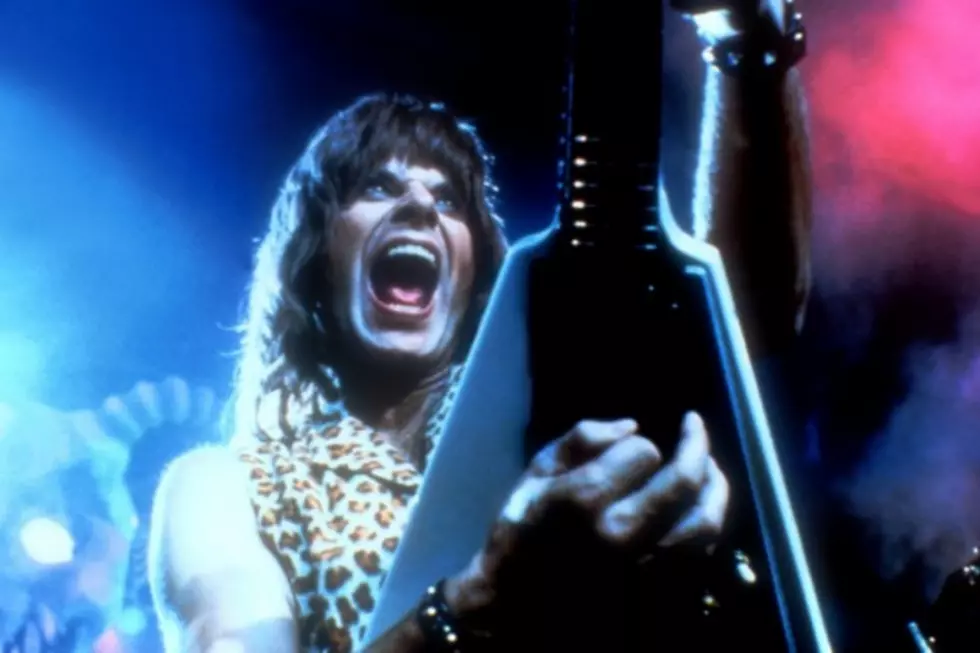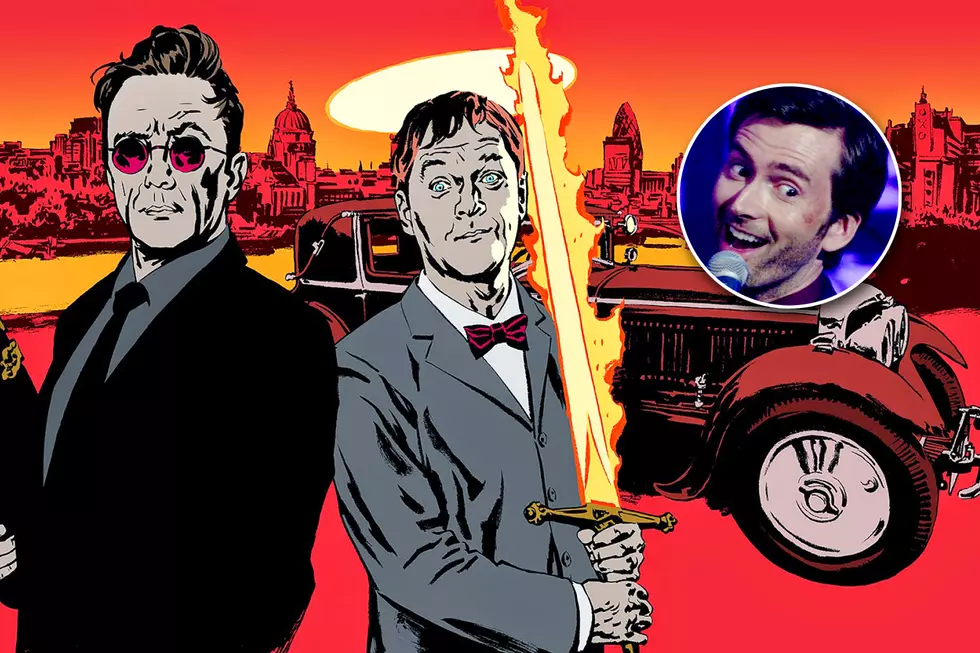
‘This Is Spinal Tap’ Star Christopher Guest Talks the Hilarious Origins and Influences for the Film’s 30th Anniversary
Let it be known that I never saw 'This Is Spinal Tap' prior to the 30th anniversary screening at the New York Film Festival late Wednesday night. I was aware of Christopher Guest (the six-fingered man, obviously) and his work with Michael McKean creating films centered on different musical genres -- 'This Is Spinal Tap,' 'A Mighty Wind' and 'Waiting for Guffman' -- but I still hadn't seen the first of them. I felt like an adolescent teen trying to fit in with the rest of the cool kids who laughed at nearly every joke and applauded for familiar scenes and faces. ("The numbers go all the way to 11!")
Though, my personal anxieties subsided when Guest himself hit the stage, first to present the film and then to participate in a Q&A with the audience following the screening. There's nothing like hearing the man from such classics as 'The Princess Bride' and 'Best in Show' tell a rambling, older fan, "I don't know what you just said but the answer is no."
The actor, co-writer and producer of 'This Is Spinal' hadn't seen the film in years, and was looking forward to discussing the work with the fans in attendance.
First speaking of the origins of the mockumentary, a term "made up by some journalist" that Guest despises, he and McKean had known each other since they were writing songs together in their late teens, each playing in various bands at the time. It wasn't until the late '70s, when the duo performed in a TV special, that he was introduced to Rob Reiner, who would make his directorial debut with 'This Is Spinal Tap.' "It's called a TV 'special' because you did one," joked Guest. The premise was someone changing channels, and Spinal Tap made its first appearance in one of the sketches. "It was a different group of people -- it was Michael and it was me and it was Russ Kunkel playing drums."
After their television debut, they were given money to write a script for a movie, but, as Guest says, "we realized that weekend that we couldn't really write what we do and do it in a more spontaneous way, so we took the money they gave us and we started actually making a movie -- literally just went out and started shooting this in an improvised way." When the money finally ran out, they had 20 minutes worth of footage that was then shopped around to Hollywood studios. Sadly, no one wanted to fund this project. It wasn't until writer/producer Norman Lear came along and said, "Just go and make the movie. Here's the money. Go and make the movie."
"And we did, and that was the movie," said Guest.
In creating the overall image of Spinal Tap, Guest said the group looked to an overarching genre from the '80s, rather than to a specific person or band. "There were a lot of fans who were very...pretentious, shall we say," he joked, describing their music videos as going on "for 20 minutes about unicorns and princesses." As he continued, "It's almost good for the people to be equal, thought of themselves very highly and were kind of aiming a little too high. But we wanted to write songs that were engaging -- we were musicians for a long time -- and that's the balance."
"This was not about a specific band," he reiterated, "and every band after that would come up to us and say, [donning an English accent], 'That's right. You're doing us!'"
Though, there was at least one moment from Guest's own experiences in the '70s that stuck with him and undoubtedly influenced the film, which he documented to the audience. Guest was standing in the lobby of a hotel in LA looking for a friend when he overheard the following exchange between a British man checking in and a musician:
British man: Where's your bass? Where's your bass? Where did you put your bass?
Musician: I don't know.
British man: What do you mean?
Musician: I think I left it at the airport.
British man: You left your bass at the airport?
Musician: My what?
British man: Your bass! Where's your bass?
Musician: I don't know.
"And this went on for 20 minutes," said Guest.
Before production even began, Guest, McKean and the rest of the Spinal Tap crew went out and played some shows "just to see what would happen," but, sadly, they did not walk away with a fan base after that. Though, while playing a show in LA, a more established band ended up opening for them. "It was the most exhausting situation," said Guest.
However, the funniest behind-the-scenes story from the Q&A had to have been an instance with one of their drummers, Richard "Ric" Parnell, while on their second big tour in '92. As Guest recollects:
We were playing a big place in LA, this pretty big arena and our manager -- the drummer's not there. Now, this is a real show, it's a high-profile show, and the drummer's not there. And our manager calls and he answers the phone. It's not a good sign, 'cause we're in soundcheck.
Ric: Hello?
Manager: Yes, Ric? What's going on?
Ric: My car broke
Manager: Right. Okay. You need to get in a cab and get into the -- we're doing a show in two hours, so you need to get here.
Ric: What?
Manager: You need to get here right now.
Ten minutes later, I call again to make sure.
Ric: Hello?
Guest: Hi, Ric. Uh, what's going on?
Ric: My car broke.
Guest: Yes. Please get in a cab.
He gets to the venue. He's coming down the steps ... he falls and breaks his leg. Now it's an hour before the show, and we start calling drummers that we know in LA and think if we call eight drummers and they each do two songs, we're gonna do a two-hour set. This is a nightmare. He [Ric] goes to the hospital, he comes back about a half an hour before the show with a full cast up his side. He plays the show and does another 20 cities with us, and he each plays double-kick drum so by now he's numb.
Over the course of production, 50 hours of material were shot and it took two years to edit, Guest revealed. As such, there were obviously many scenes that needed cutting, but "you have to service the story." Spinal Tap may never reunite for another blowout, at least according to Guest, but he'll always have the memories of this uproarious experience. Hanging on his wall, he still has a framed piece of paper with "Spinal Tap" written in various fonts.
And he still has that six-fingered glove.
More From ScreenCrush









